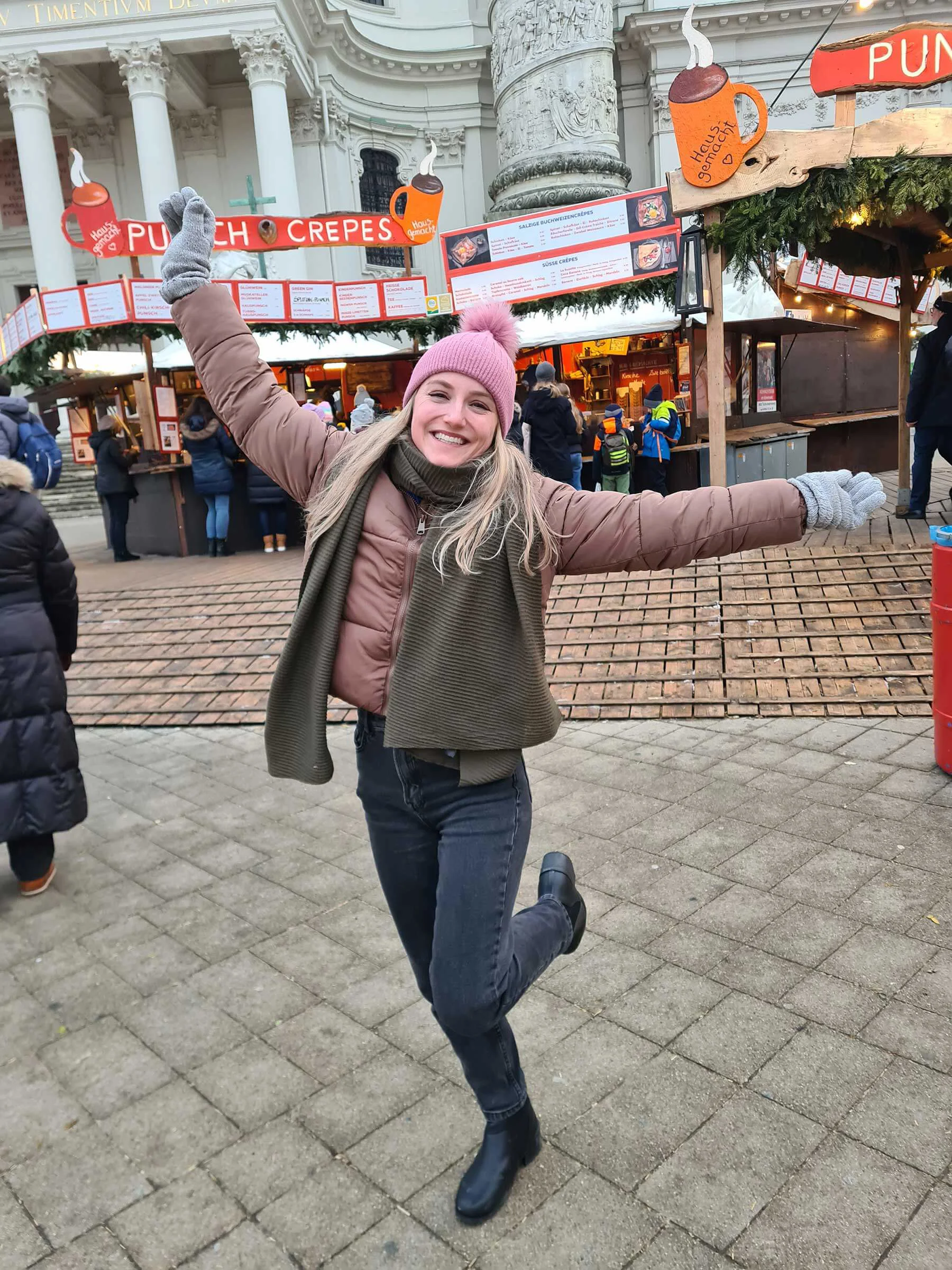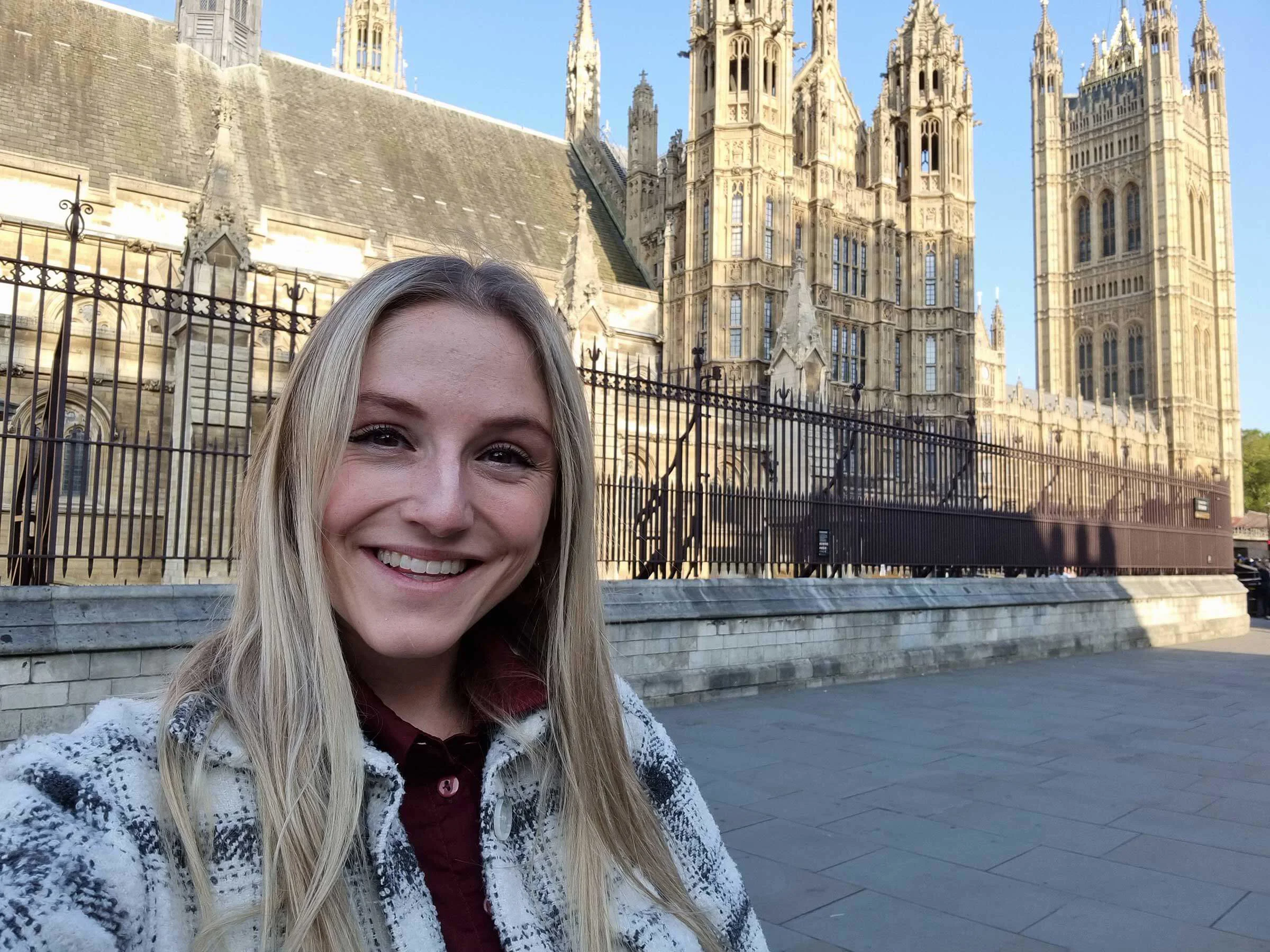My Secondment with the UK Government’s Climate Advisors
Posted by: Dr Lois Player
During the second year of my PhD, I came across UKRI’s policy internship scheme. The scheme offered fully funded three-month secondments at a range of influential policy organisations, where students can apply their research skills in a policy environment. I was working closely with local policymakers during my PhD and consultancy work at the time, so was very eager to experience policymaking on a national level.
I was immediately drawn to the Climate Change Committee (CCC), who are the UK Government’s independent climate change advisors. They advise the UK and devolved governments on emissions targets and report to Parliament on progress in reducing greenhouse gas emissions and adapting to climate change impacts. Having seen in my own work how policies can often be politically driven, the CCC’s role of providing independent advice to guide the Government towards Net Zero resonated with me. In particular, I was excited to see that they were currently forming a new team focusing on the role of people and businesses in the transition to Net Zero – perfect for me! Motivated by the shared mission of strengthening the behavioural and social science capacity of the CCC, I applied.
The Application Process
The application process involved a form outlining my research expertise and how it aligned with the CCC’s focus, and producing a POSTNote about a topic that the UK Government should further explore. POSTNotes are short briefings reviewing emerging areas of research, the challenges they may pose, and the solutions potentially required to address them – to be debated in Parliament. I wrote about “Low Carbon Diets to Address Climate Change” – a topic unrelated to my PhD, but one that I am very interested in.
The interview was the most positive interview experience I’ve had. Daisy and Jaya from the lovely CCC team were interested in my research, experience and what I could bring to the CCC, and I had read so many CCC reports by this point that there was a lot to talk about. I heard back a few days later – whilst on holiday in Austria – and this photo was taken seconds after I got off the call accepting my offer!
I was assigned to the People & Business Team as I’d hoped and organised timings to begin my placement in June 2023, at the end of the second year of my PhD.

The Experience
The CCC are based in London, and I decided to stay in London three days a week. This worked well since most employees worked from home two or three days a week, so I still had a full experience. Plus, I think I’ve now experienced most of London’s Travelodges!
Everyone was so welcoming and friendly, and I immediately felt part of the wider team. The People & Business Team consisted of three parts: (1) Green choices and public engagement, (2) Distributional impacts of climate policies, and (3) Sustainable choices for businesses and financial institutions. I worked predominantly on challenges related to green choices and public engagement, with some time on distributional impacts too.
My Projects
During my time at the CCC, I worked on a range of exciting projects.
- Publishing, disseminating & presenting commissioned work to stakeholders. I wrote an accessible summary of CCC-commissioned work by the Centre for Climate Change and Social Transformations (CAST – my research group at Bath!), and liaised closely with the Communications team to publish the report. To disseminate this work, I organised and presented two sessions with key stakeholders: (1) A Teach-In Event with 200+ key stakeholders from Government, NGOs, industry, and academia, (2) a focused session with behavioural experts from all four UK devolved administrations.
- Researching perceptions of fairness in Net Zero policymaking. This included producing a concise summary of the area, intended to inform future CCC work, such as their Seventh Carbon budget or progress reports. It explored the role of fairness considerations, differences in perceptions of fairness between social groups, and how fairness can be best communicated to the public.
- Researching about the public acceptability of Net Zero policies. Closely related to my PhD, this work included producing a concise summary of the policy acceptability area, to inform future CCC work. It explored the determinants of policy support, how acceptance can shift over time, and how to design fair, effective policies that are ultimately well-accepted by the public.
- Developing progress indicators for Scotland. The CCC track various quantitative indicators over time, to monitor ongoing progress towards meeting Net Zero goals. For People & Net Zero, these had not yet been developed, so I selected and narrowed appropriate indicators to track for Scotland, whilst liaising with the Scottish Government.
- Developing progress indicators for the UK. This involved developing a wish-list of suitable progress indicators for the UK, finding any suitable longitudinal data that currently existed, and liaising with the relevant Government teams and other organisations to communicate the need for this data to be collected.
- Research on the distribution of emissions in the UK. This involved working with other team members to find suitable robust datasets about the split of (pro)environmental choices by social group.
- Distilling CCC guidelines on heat resilience. This involved creating a summary document of the existing and in-progress CCC guidance on sustainable cooling and heat resilience in homes, workplaces, and schools - surrounding behavioural adaptation measures people could take to cope with extreme heat.
- ‘Lunch and Learn’ on policy acceptability. To share some of my own research with the CCC team, I hosted a session presenting the state of the art of policy acceptability, my own research, and knowledge gaps in the area.
- Stakeholder engagement. Since the People and Business Team was new, a lot of our time was spent forming stakeholder relationships within Government, NGOs, industry, and academia. By attending stakeholder meetings, I helped shape our relationships with new stakeholders, alongside making introductions to relevant groups and individuals I had previously worked with.
An Example Day
Each day at the CCC was very different - especially since my team was new and still scoping what the biggest challenges to address were!
- Morning. A typical morning might start by catching up with climate news and responding to emails. This might be followed by continuing some research, modelling or report writing, and attending meetings with external stakeholders, government colleagues or internal colleagues.
- Team Lunch! Always a lovely part of the day.
- Afternoon. Sometimes we would attend events, including academic/ NGO workshops or conferences, or relevant debates in Parliament, the House of Lords, or House of Commons. Below is me after attending my first of these, which was a debate about the House of Lords enquiry into behaviour change for climate goals!

Some days were less typical than others – one day we did a team building scavenger hunt around London! There were plenty of after-work socials, which all fostered a genuine sense of community, as well as being great for getting to know my colleagues.
What I Learnt
In just three short months, I learnt a huge amount about how to translate academic research into useful policy insights, the key policy challenges the UK faces today across mitigation and adaptation, and which evidence gaps are most important to address with research. I developed my analytical skills, public communication skills, and have a new understanding of how to best work with diverse and multiple stakeholder groups. I had the opportunity to meet and present to stakeholders from Government across all four Nations, NGOs and industry, contribute to key projects, and help develop the CCC's first green choices and distributional impacts workstreams.
I feel so fortunate to have joined at the very beginning of the People & Business team and loved helping my wonderful team scope and develop projects that would help us understand the role of people in the Net Zero transition. Whilst I haven’t missed the constantly delayed GWR trains (!), I have very much missed the CCC team, and all the exciting projects I worked on.
I’m so grateful to the CCC team for being so welcoming, kind, and full of wisdom, to Sandra and Bea at the CCC for being the best mentors, and to AAPS CDT and UKRI for supporting this opportunity. If you’re interested in climate policy and want to understand how research is used in the real world – a placement with the CCC is for you!